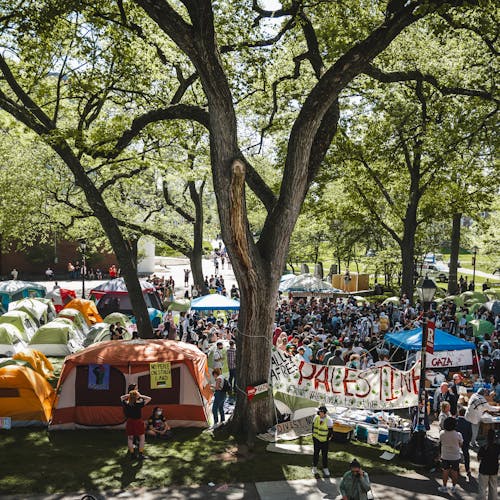Rutgers experts discuss effects of coronavirus on climate change

The global economic effects of the coronavirus disease (COVID-19) pandemic has reduced greenhouse gas emissions for now, but more deliberate, long-term measures are required to stabilize the climate, said Rutgers experts.
Global carbon dioxide emissions are expected to decline by eight percent this year, according to the International Energy Agency (IEA). Such a year-on-year reduction would be the largest in history, six times larger than the reduction in 2009 from the Great Recession and twice as large as the combined total of all reductions since the end of World War II, according to the IEA report.
To meet the Paris Agreement goal of limiting global warming to 1.5 degrees Celsius, emissions would need to decline approximately 7.5 percent per year for the next 30 years, said Robert Kopp, director of the Rutgers Institute of Earth, Ocean and Atmospheric Science and professor in the Department of Earth and Planetary Sciences.
"With the global economic downturn, we may be looking at the most abrupt decline in carbon dioxide emissions in history this year, but this decline is almost immaterial," Kopp said, according to a press release. "The climate doesn't care about emissions in one year. It cares about the sum total of all emissions emitted across the years, so what matters for climate change is what happens next."
Rachael Shwom, an associate professor in the Department of Human Ecology, said lockdowns have driven emissions downward by creating the downturn in a fossil fuel-using economy and limiting people from driving.
"As overall greenhouse gas emissions go down with overall economic recession, households are faced with a new consumption pattern," Shwom said, according to the release. "The carbon footprint of their travel is down to almost zero for many as they stay at home, not driving or flying for weeks or months at a time."
Household emissions from food, energy and water use will increase due to the containment of these activities in the home, Shwom said, according to the release. But the increase in residential demand for electricity is far outweighed by a decrease in commercial and industrial demand, according to the IEA.
Kopp said it is critical that as people discuss future infrastructure investments to restart the economy, these investments place the world on a trajectory toward net-zero greenhouse gas emissions. Shwom said the decarbonization of electricity and transportation systems will be key infrastructure investments to fuel economic recovery.
"What matters is not the fact that emissions have declined (due to) the temporary economic slowdown," Kopp said. "What matters is how we recover from the slowdown and whether, as we start throwing around trillions of dollars to restore the economy, we're restoring the 20th century fossil fuel-powered economy or trying to get upon a pathway toward decarbonization."
Kopp said the climate crisis does not pause with the economic crisis, as people continue to dump greenhouse gas emissions into the atmosphere that cause harm for decades to centuries.
"We are investing trillions of dollars right now, so when you invest money, you're making decisions about putting that money in infrastructure," Kopp said. "You're making decisions about what sort of society you want to live in for multiple decades to come. And so, there's both the fact that the climate problem isn't going away if we don't take action and the fact that we are making decisions that are not just about the emergency, but about the longer-term direction of society. And so, if we don't think about climate change, that's the decision that's going to be with us for a long time."



